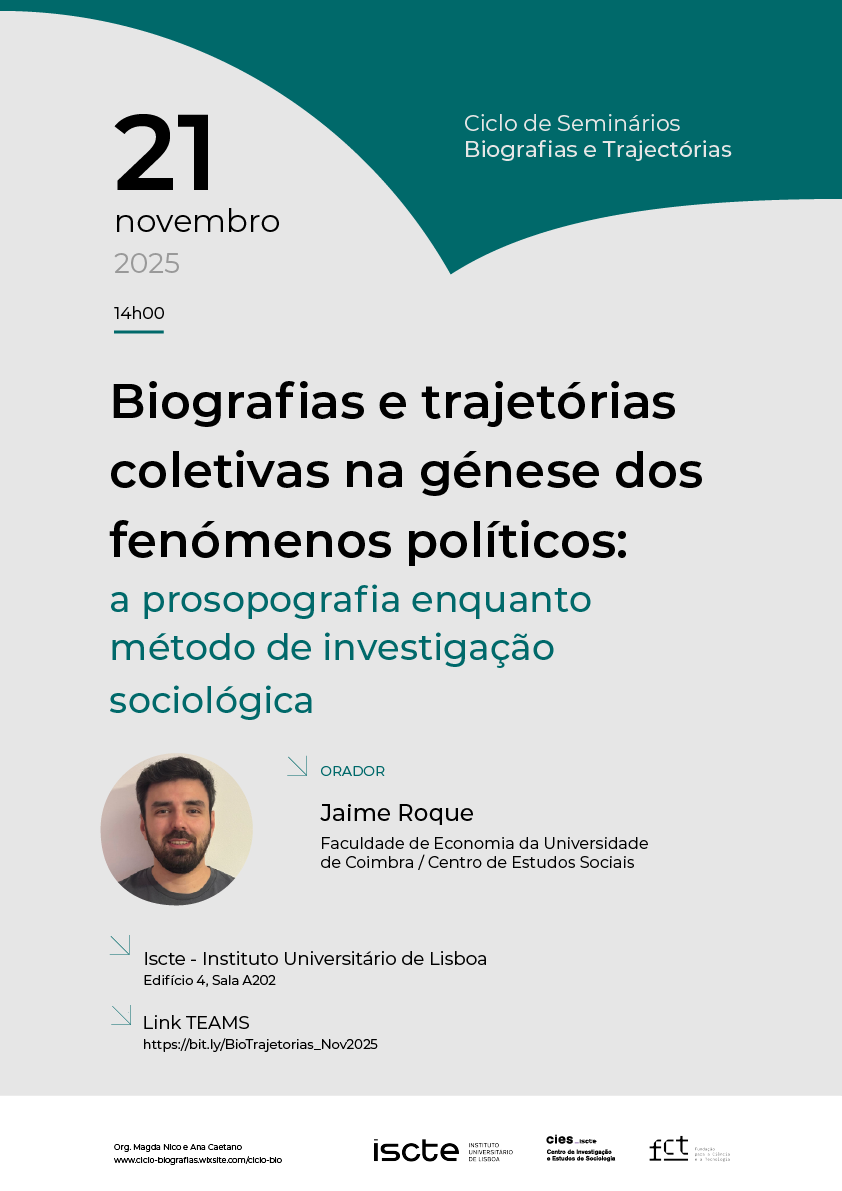- News
- Events
- Recurring Events
- Biographies and Trajectories
- Cidades & Impérios: dinâmicas locais, fluxos globais
- Cultural Diversity in Contemporary Families
- Meetings on China Studies
- Meetings Migration Experiences
- Social studies on science and the circulation of knowledge
- Public Policy Forum
- Research Forum CIES
- Gender, Sexuality and other social markers of difference
- ETNO.URB Readings
- Social Movements and Political Action
- New Perspectives on Modern History
- Revisiting the 19th Century
- Research Workshops
- Methodological Innovation Workshops
- Calls
The next seminar in the Biographies and Trajectories Cycle will take place on November 21, 2025, starting at 2 p.m., with the theme “Biographies and collective trajectories in the genesis of political phenomena: prosopography as a method of sociological research,” in a hybrid format.
In this session, we welcome researcher Jaime Roque from the Faculty of Economics of the University of Coimbra (FEUC/CES).
VENUE
Room A202, Building 4, Iscte
TEAMS LINK
https://bit.ly/BioTrajetorias_Nov2025
ABSTRACT
This paper highlights the role that prosopography (also known as collective biographies) can play as a method of sociological research. By discussing the main theoretical and methodological premises and their respective operationalization in several classic works of sociology, I will seek to show how the study of collective biographies of elites through the triangulation of various documentary sources allows us to deconstruct the origins of political phenomena from a long-term socio-historical perspective. These arguments will be illustrated in more detail based on original research that began with my master's thesis entitled “The Repetition of Transits: A Prosopography of Chega” and is still being developed as one of the various analytical dimensions of my doctoral project on the parliamentary and communication practices of this party. Analyzing the sociogenesis of the Portuguese far right through the biographies and trajectories of its main founders and leaders allows us, in the current global context of authoritarian radicalization, to better situate its ideas and practices within a long social and political history stretching from the First Republic to today's democracy, from the point of view of its relations with other ideological and organizational configurations of the right and its respective inscription in various fields of power in Portuguese society. Prosopography thus represents a qualitative method of sociological research that is essential for any social scientist interested in studying the main socio-political transformations of contemporary societies beyond their logic of media coverage and self-representation.




